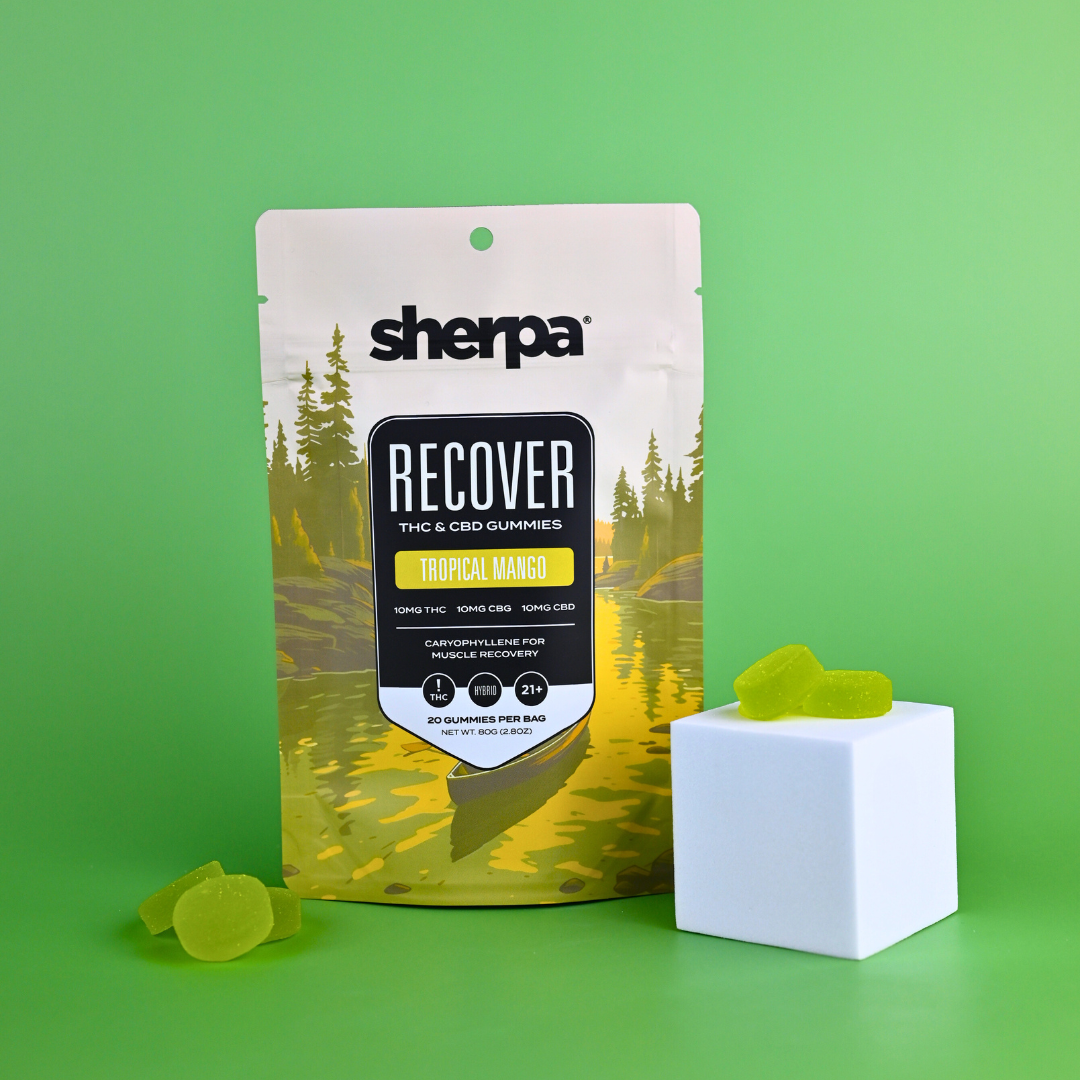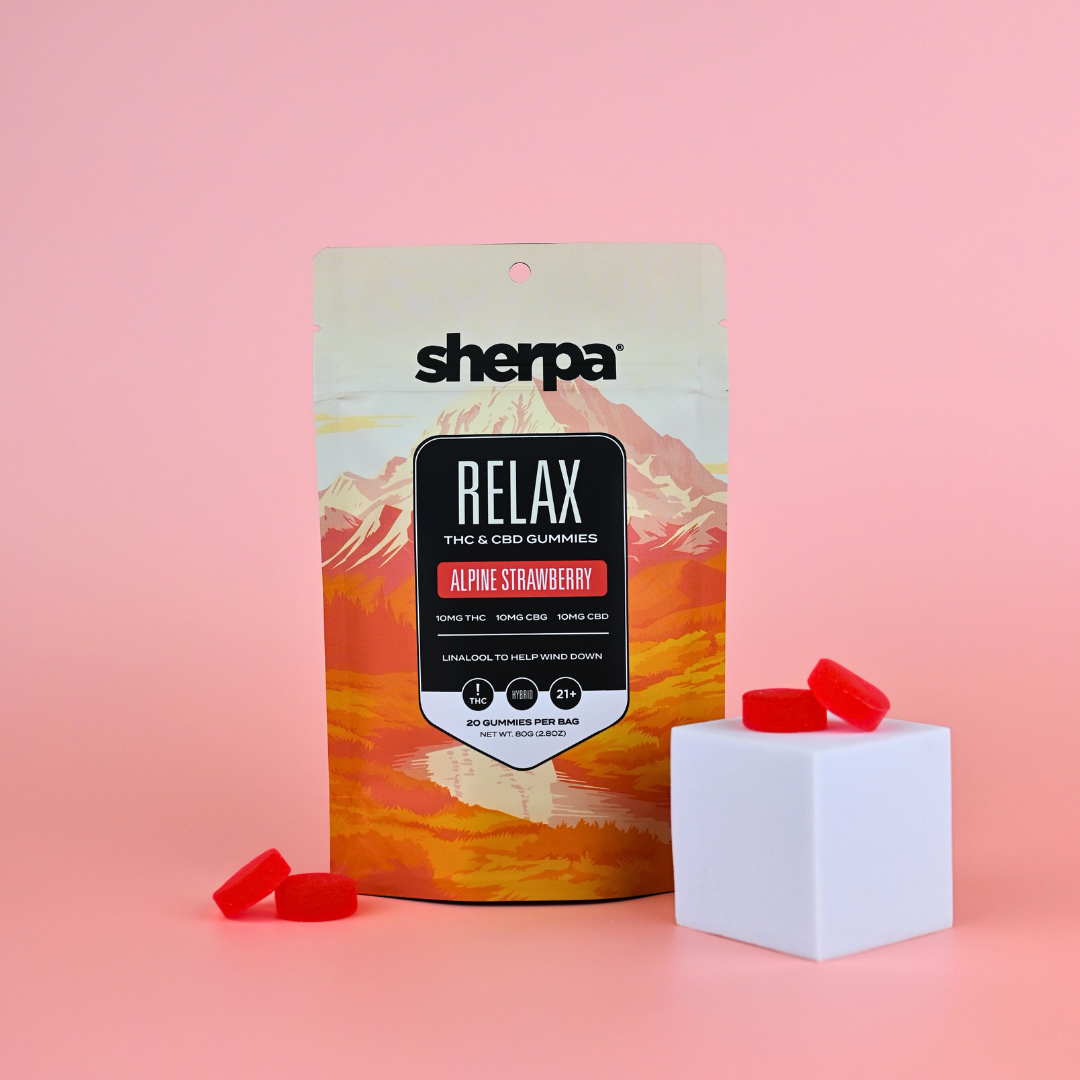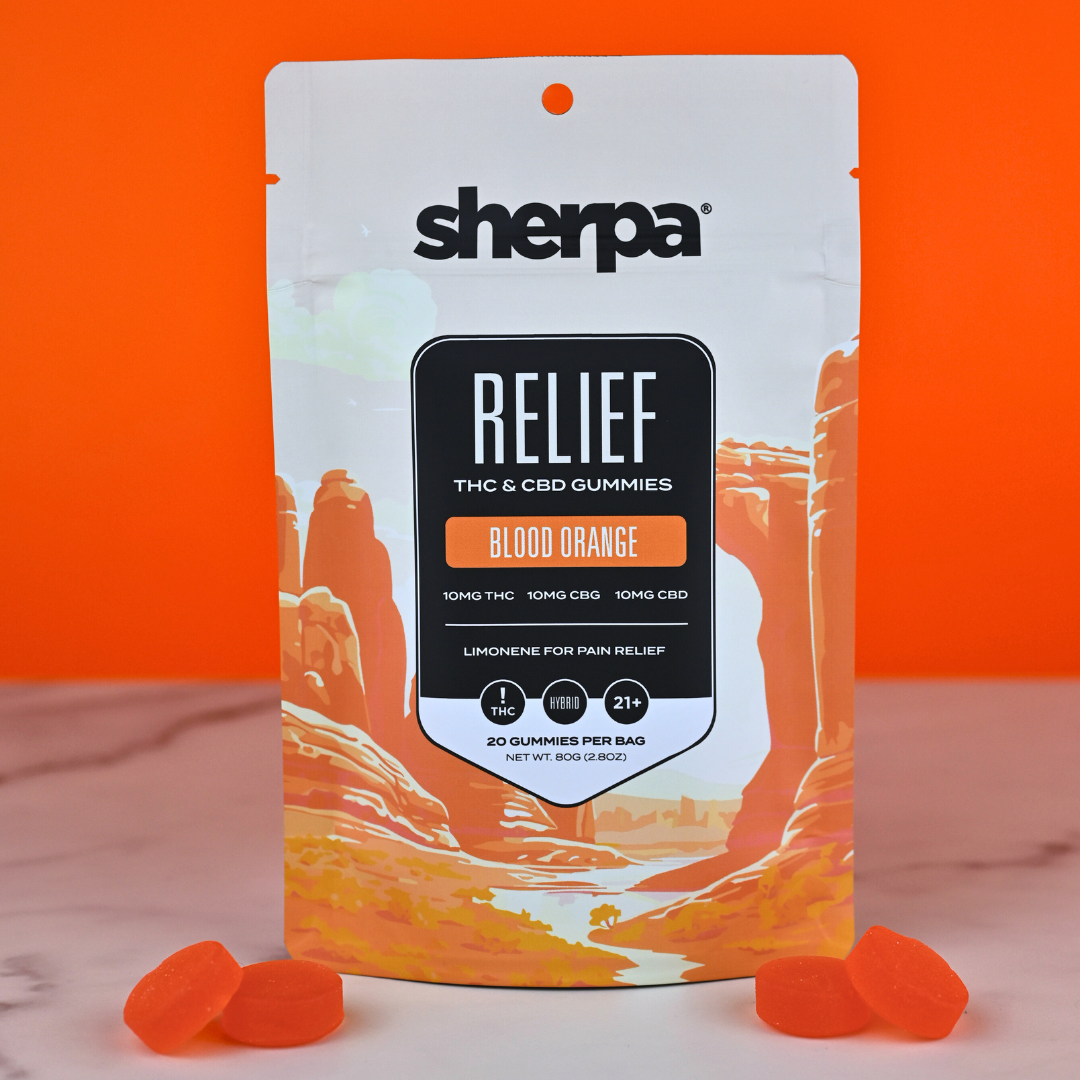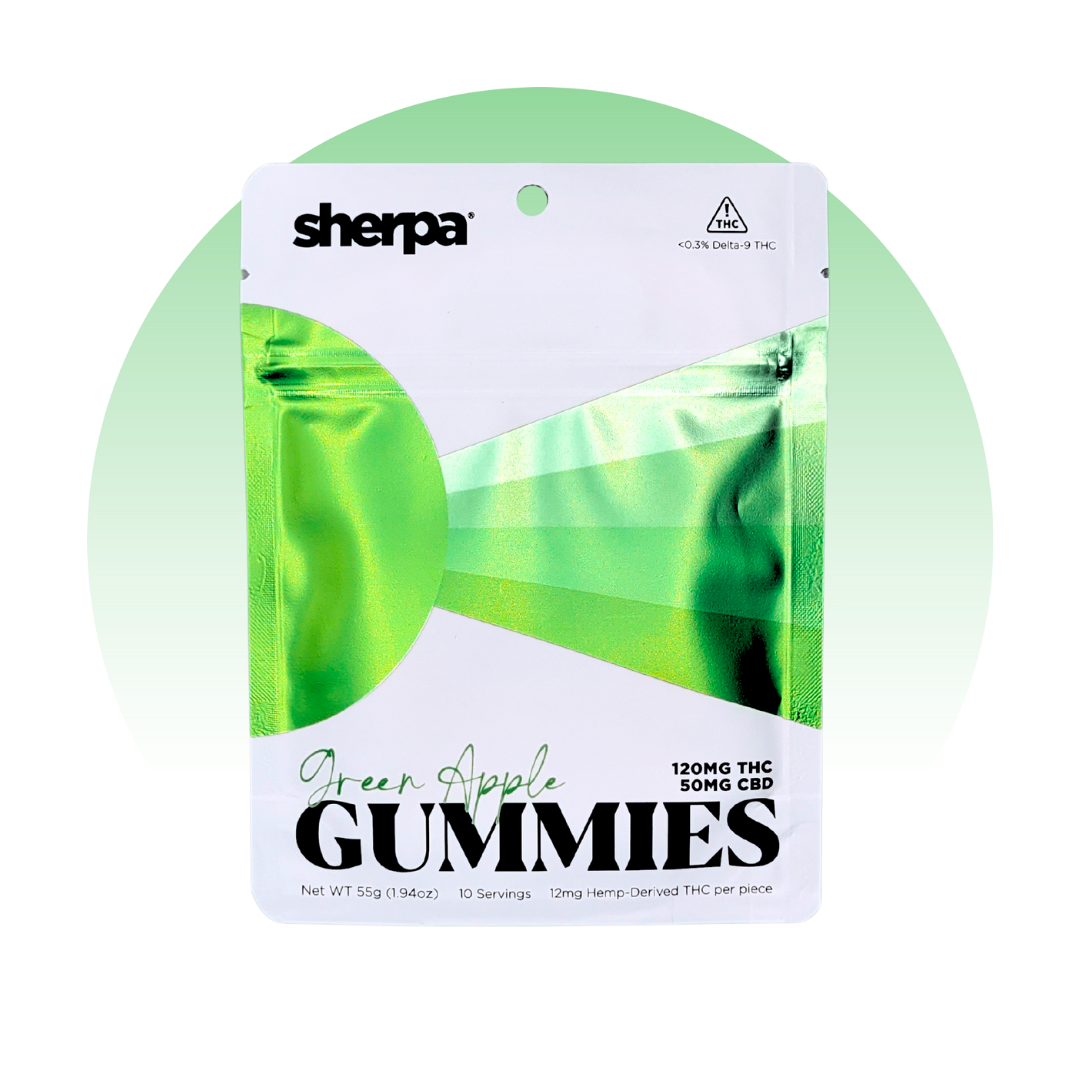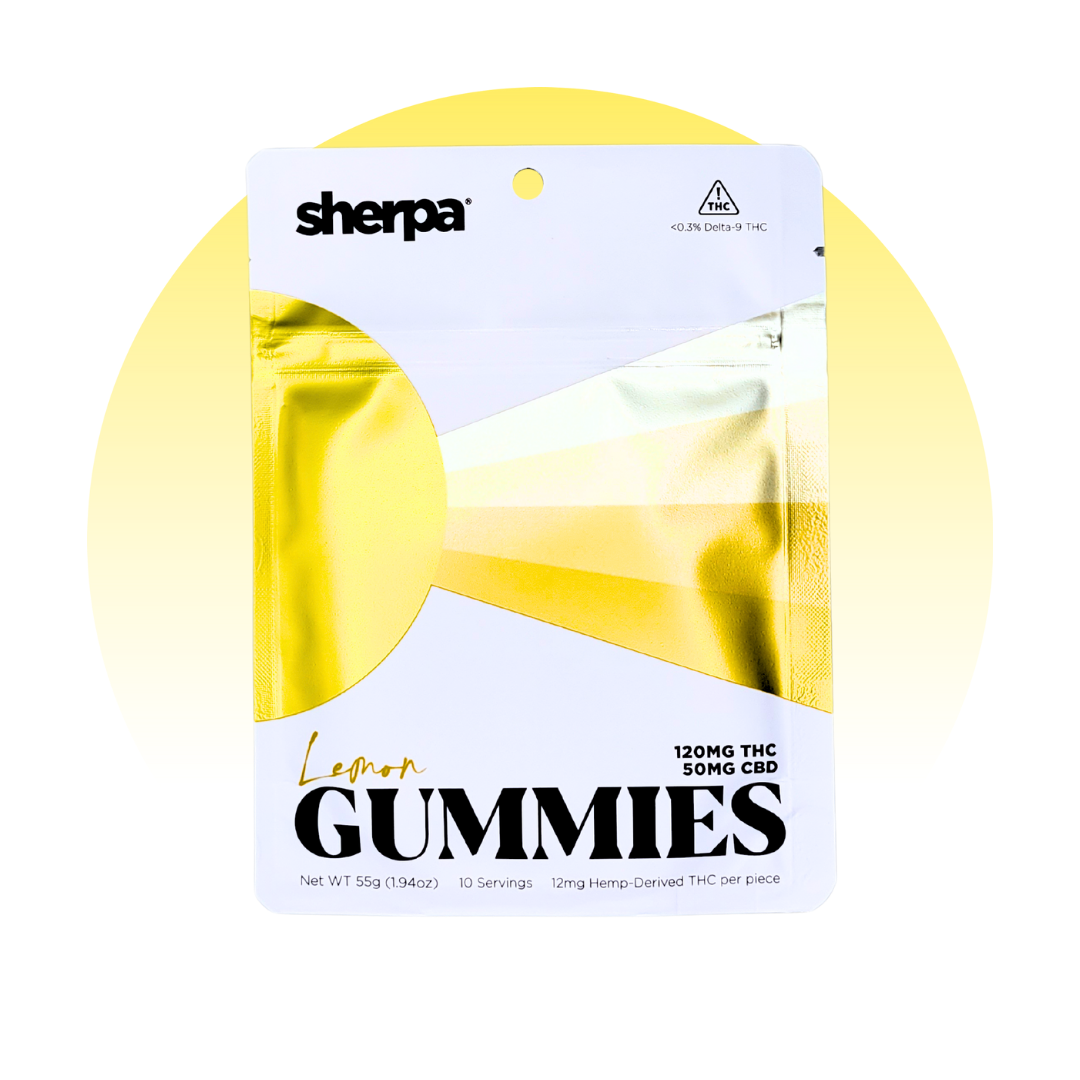
Our Blog
How Long Do Edibles Stay in Your System?
How Long Do Edibles Stay in Your System?
Whether you're a seasoned cannabis connoisseur or completely brand new to edibles, you've probably asked yourself the same question at some point — how long does this stuff actually stay in my system? It's an important question for anyone who's consumed cannabis in edible form — especially if you're unsure about how it might affect you the next day or if your new employer mentioned drug tests.
Never fear, though. We're going to break down everything you need to know about how long edibles hang around your system. From how your body processes cannabis to how long you'll feel the effects, we'll cover all the details and help you understand what's going on inside your body after you've taken edible cannabis.
To get started, though, we're going to talk about some basic anatomy and physiology.
The Basics: How Your Body Processes THC from Edibles
Before diving into the specifics of how long THC stays in your system, it's important to understand how edibles are processed in your body. This process differs pretty significantly from smoking or vaping cannabis, so pay attention.
The Digestive Process: A Slow Churn
When you consume cannabis in edible form, your body goes through several stages before THC hits your bloodstream and, shortly thereafter, your brain. The edible has to first pass through your digestive system, where it's broken down and absorbed. From there, it enters the liver, where the THC is metabolized into a more potent compound called 11-hydroxy-THC.
11-hydroxy-THC is more powerful than regular THC, and it has a stronger impact on your brain, often leading to a more intense and longer-lasting high. The liver's conversion process also means that the effects of edibles take longer to set in. While smoking or vaping cannabis might cause you to feel high within minutes, with edibles, it can take anywhere from 30 minutes to two full hours for the effects to kick in fully.
Because of this slow absorption process, the effects of edibles also tend to last longer, often several hours. That makes it a different experience from smoking, where the high may peak quickly and fade within an hour or so.
Metabolism and Duration: What Affects How Long Edibles Stay in Your System?
The duration of time edibles work on you varies based on several factors. Your metabolism plays a key role, as does the dosage, your body fat, and even your individual tolerance to cannabis. Let's break it down:
- Metabolism: People with faster metabolisms tend to process edibles more quickly. If you're more active or have a higher metabolic rate, you might feel the effects wear off a little faster. Conversely, if you have a slower metabolism, the THC may remain in your system longer.
- Dosage: The amount of THC in the edible also affects how long it stays in your system. Higher doses of THC take longer to break down, meaning the effects can last longer, and the substance might stay detectable in your system for a more extended period.
- Body Fat: THC is fat-soluble, which means it binds to fat cells in your body. People with higher body fat percentages may find that THC stays in their system for longer since fat cells store THC metabolites. If you have less body fat, THC may be processed and eliminated from your system more quickly.
- Tolerance: If you're someone who uses cannabis regularly, your body may be better at processing THC, meaning the effects may wear off more quickly, and the substance may not stay in your system as long as someone with a lower tolerance.
So, now that you know how edibles are processed in your body, let's get to the question you've been waiting for: how long do they actually stay in your system?
A General Timeline: How Long Do Edibles Stay in Your System?
Let's start with the immediate effects. Like we said above, an edible will typically begin to set in about 30 minutes to two hours after consumption. Unlike smoking or vaping, where you feel the effects almost immediately, edibles require your body to metabolize them first. Once those effects hit, they can be more intense, but they will gradually peak and level off.
The high from edibles usually lasts longer than the high from smoking or vaping cannabis. On average, you'll experience the full effects of an edible for about four to six hours. This can vary depending on the potency of the edible, your metabolism, and how much you consumed. Some people report feeling residual effects — like grogginess or a slight buzz — even up to 12 hours after consumption, especially when consumed in high dosages.
Alright, so that's the effective duration — that is, where you can notice effects. As you likely know though, THC sticks around long after you're no longer feeling it. THC can stay in your bloodstream for up to 12 hours after consumption, though this is dependent on how much you've consumed and how frequently you use cannabis. In some cases, the detectable level of THC in the blood can be reduced to zero within 6 hours for casual users. Regular users, however, may still have detectable levels for a day or two after consumption.
That's not the only fluid it's going to show up in though. THC is stored in fat cells, so it can remain detectable in urine for a longer time. For occasional users, THC can stay in urine for one to three days. For regular users, it can stay in your urine for up to a week or even longer. Heavy users who have more body fat might test positive for THC metabolites in their urine for several weeks. Urine tests are the most common way of detecting THC use and are used by law enforcement as well as private industry.
If they really want to know what you've been up to, though, they're going to test your hair. THC metabolites can also be found in hair follicles for up to 90 days, although hair tests are less commonly used to detect cannabis use. That's mainly for other, much more harmful substances. Something to keep in mind though.
It's also important to remember that everyone's body is different, and the length of time THC is going to stay in your system is reliant on a number of factors. Let's take a look at some of them now.
Factors That Influence How Long Edibles Stay in Your System
The biggest factor in how long THC can be detected in your system is how frequently you use it. If you're an occasional cannabis user, THC may clear your system faster than it would for someone who uses cannabis regularly. With repeated use, THC can build up in your system, leading to longer detection times.
Dosage
The stronger the edible, the longer it may take for your body to break down and process the THC. So, if you consume a high-dose edible, it might take longer for the effects to subside and for THC to leave your system. If you're concerned about how long a large dose might stay in your system, consider taking a lower dose and monitoring how it affects you over time.
Your Liver and Digestion
Your liver is responsible for metabolizing edible THC, so the efficiency of your liver functions can also play a role in how quickly the body breaks down the compound. People with liver conditions or those who take medications that affect liver function may process THC more slowly.
Hydration and Diet
If you're well-hydrated and have a healthy diet, your body may be able to process THC faster. Drinking plenty of water and eating a balanced diet will speed up your metabolism, which will, in turn, help your body process THC.
That said, it's not like you can chug a bottle of water and hop on the treadmill for 2 hours and pass that drug test in the morning. Let's unpack some of the myths about getting THC to leave your system.
Misconceptions About Flushing THC from Your System
There are plenty of myths and misconceptions floating around when it comes to detoxing your body from THC, especially if you're trying to pass a drug test. From "miracle detox drinks" to "the more water you drink, the faster it goes away," it's easy to get caught up in half-truths and misinformation. So, let's set the record straight and debunk some of the most common misconceptions about flushing THC from your system.
Drinking Lots of Water Will Instantly Flush THC Out
One of the most widespread myths is that drinking excessive amounts of water will quickly and effectively flush THC out of your system. While staying hydrated is important and can help support your body's natural detox processes, simply drinking large quantities of water won't magically speed up the elimination of THC.
Here's the deal — THC is stored in your fat cells, not in your bloodstream, so it's not as simple as "flushing it out." Drinking water can help dilute your urine and may lower the concentration of THC metabolites temporarily, but it won't eliminate the THC itself. In fact, drinking an extreme amount of water in a short period could actually harm your body by flushing out essential electrolytes and potentially causing a condition called water intoxication, which, in severe cases, can be dangerous.
The best advice? Stay hydrated in a balanced way and give your body time to process the THC naturally.
Detox Products or 'Cleansers' Are a Quick Fix
There are dozens of products on the market claiming to help you "detox" THC from your system, from special teas to detox pills and "cleansing" drinks. These products often promise to rid your body of cannabis in just a few days or even hours. The problem? Most of these products are snake oil.
While some detox products may temporarily mask the presence of THC metabolites in your urine by diluting it, they don't truly accelerate the elimination of THC from your system. In many cases, these products simply flood your system with excess fluids, making it harder to detect THC in a urine test. But once the body returns to its natural state, the THC is still there — it's just a temporary measure.
If you're considering using a detox product, proceed with caution. Many are not scientifically proven to work, and relying on them could give you a false sense of security that ends with you losing your job or being placed in handcuffs.
Exercise Will Help You Sweat Out THC
Some people believe that sweating it out through exercise is an effective way to rid your body of THC. The idea here is that THC is fat-soluble, so if you burn fat, you can release the stored THC into your bloodstream, where it will be processed and excreted.
While it's true that exercising can help burn fat, which might release some THC metabolites, the idea that you'll sweat out enough THC to noticeably affect a drug test is largely a myth. The THC released into your bloodstream will still need time to be metabolized and eliminated by your liver and kidneys, meaning the effects on a drug test are pretty minuscule.
THC Metabolites Are Only Detected in Urine
While it's true that urine tests are the most common way to detect THC, the idea that THC metabolites are only present in urine is a misconception. THC can be detected in multiple ways, including blood, saliva, and hair follicle tests, with each method having different detection windows.
If you're concerned about passing a drug test, keep in mind that THC can be detected in different parts of your body for varying lengths of time. So even if your urine test shows no detectable THC, traces might still be present in your blood or hair follicles.
THC Will Be Gone from Your System in Three Days, No Matter What
Many detox products and online forums suggest that THC will leave your system in about three days. However, this "3-day rule" doesn't account for the variety of factors that influence how long THC stays in the body.
For infrequent users, THC may be detectable in urine for about one to three days after consumption. But for regular users, the three-day window is far too optimistic. In fact, THC can stay in the system for up to a week or more for moderate users and several weeks for frequent users. This is especially true for people who have higher body fat or slower metabolisms, as THC is stored in fat cells and released gradually over time.
In other words, there's no "one-size-fits-all" answer for how long THC will stay in your system. Your habits, metabolism, and body composition all play a role in determining the timeline. And simply put, you just can't cheat the clock.
So How Long Do Edibles Stay in Your System? A Pretty Long Time
It should come as no surprise that at Sherpa, we love edibles. They're a unique way to experience cannabis, offering a longer-lasting high than smoking or vaping. While the effects of edibles typically last about six hours, it's really important to keep in mind that THC can stay in your system for a much longer period — from a few days to several weeks, depending on your body's metabolism, the dosage, and your frequency of use.
If you're new to edibles, remember to start with a low dose. And if you're worried about drug tests or how long THC will linger in your system, keep in mind that there's no quick fix to eliminate it. The best way to ensure THC leaves your body is simply time, hydration, and a healthy lifestyle. And if you've got a drug test next week, just hold off on putting any THC in your body at all. Better safe than sorry!